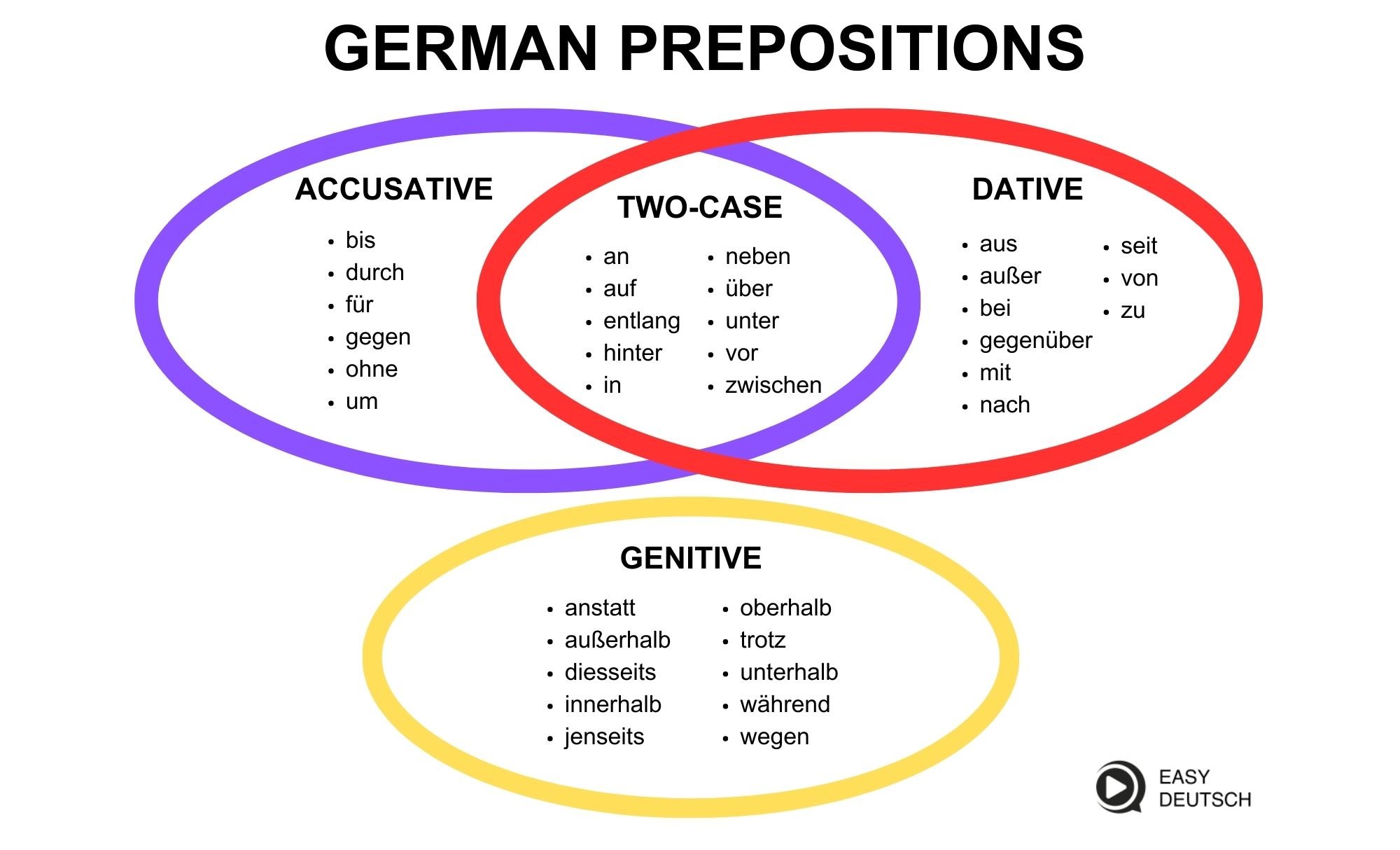Accusative Prepositions with Examples
bis
"Bis" comes before location and time expressions that don’t have an article. If there’s an article, there will also be another preposition (and this second preposition determines the case).
Examples:
- „Bis Berlin fahre ich mit dem Zug.“
- „Der Bus fährt bis München.“
With other prepositions:
- „Ich fahre bis in die Innenstadt.“ ⇒ „in“ determines the case
- „Er bringt sie noch bis zur Tür.“ ⇒ „zu“ determines the case
Warning!
„Bis“ can also be used as a conjunction - then it has no influence on the case.
Example:
„Du darfst nicht raus, bis du deine Hausaufgaben fertig hast.“
Tip:
When „bis“ is related to a verb instead of a noun, it’s being used as a conjunction.
durch
Examples:
- „Der Zug fährt durch den Tunnel.“
- „Ich gehe jeden Tag durch den Wald zu meiner Firma.“
Warning!
„Durch“ also has a meaning related to time. It always comes after the noun and is usually combined with „hin.“
Example:
„Das ganze Jahr hindurch hat er versucht, einen besseren Job zu finden.“
entlang
The preposition „entlang“ can come before or after a noun. When the preposition comes first, genitive is used. When the noun comes first, accusative is used.
Examples:
- „Sie geht den Fluss entlang.“
- but: „Sie geht entlang des Flusses.“
- „Ich laufe die Straße entlang.“
- but: „Ich laufe entlang der Straße.“
für
Examples:
- „Ich interessiere mich nicht für Mathe.“
- „Für den Rest des Tages habe ich frei!“
gegen
Examples:
- „Er ist gegen den Baum gefahren.“
- „Ihr spielt heute gegen die beste Mannschaft der Liga.“
ohne
Examples:
- „Ohne deine Hilfe hätte ich das nicht geschafft.“
- „Sie können sich ein Leben ohne ihre Kinder nicht mehr vorstellen.“
Warning!
„Ohne“ can also be used as a conjunction - then it doesn’t affect the case. It is used in „ohne dass“ and before infinitive-clauses.
Examples:
„Er hat die Prüfung bestanden, ohne dass er auch nur einmal dafür geübt hat.“
„Er hat die Prüfung bestanden, ohne auch nur einmal dafür zu üben.“
um
„Um“ is often combined with „herum.“ „Um … herum“ means that the action is occurring around the object, or that we’re talking about an approximate period of time.
Examples:
- „Er dreht sich beim Salto drei Mal um die eigene Achse.“
- „Um 19:30 Uhr muss ich zu Hause sein.“
„um … herum“:
- „Um das Rathaus herum findest du viele Parkhäuser.“
- „Alle 5 Jahre um Ostern herum treffen wir uns zu einem Klassentreffen.“
Related Topics:
A comprehensive explanation about the uses and declension of the accusative case: The Accusative.
Here are two more lists: Dative Prepositions and Genitive Prepositions.
A detailed explanation of the 4 German cases: The German Cases.



